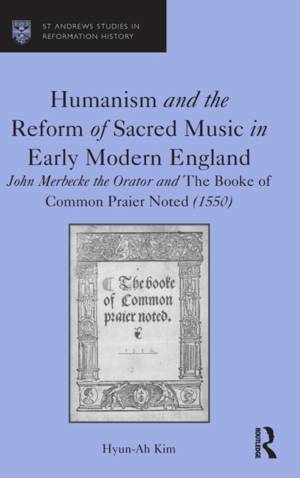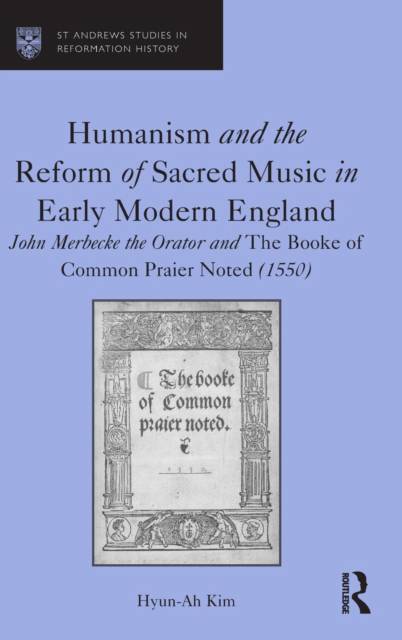
Bedankt voor het vertrouwen het afgelopen jaar! Om jou te bedanken bieden we GRATIS verzending (in België) aan op alles gedurende de hele maand januari.
- Afhalen na 1 uur in een winkel met voorraad
- In januari gratis thuislevering in België
- Ruim aanbod met 7 miljoen producten
Bedankt voor het vertrouwen het afgelopen jaar! Om jou te bedanken bieden we GRATIS verzending (in België) aan op alles gedurende de hele maand januari.
- Afhalen na 1 uur in een winkel met voorraad
- In januari gratis thuislevering in België
- Ruim aanbod met 7 miljoen producten
Zoeken
Humanism and the Reform of Sacred Music in Early Modern England
John Merbecke the Orator and The Booke of Common Praier Noted (1550)
Hyun-Ah Kim
€ 305,45
+ 610 punten
Omschrijving
John Merbecke (c.1505-c.1585) is most famous as the composer of the first musical setting of the English liturgy, The Booke of Common Praier Noted (BCPN), published in 1550. Not only was Merbecke a pioneer in setting English prose to music but also the compiler of the first Concordance of the whole English Bible (1550) and of the first English encyclopaedia of biblical and theological studies, A Booke of Notes and Common Places (1581). By situating Merbecke and his work within a broader intellectual and religio-cultural context of Tudor England, this book challenges the existing studies of Merbecke based on the narrow theological approach to the Reformation. Furthermore, it suggests a re-thinking of the prevailing interpretative framework of Reformation musical history. On the basis of the new contextual study of Merbecke, this book seeks to re-interpret his work, particularly BCPN, in the light of humanist rhetoric. It sees Merbecke as embodying the ideal of the 'Christian-musical orator', demonstrating that BCPN is an Anglican epitome of the Erasmian synthesis of eloquence, theology and music. The book thus depicts Merbecke as a humanist reformer, through re-evaluation of his contributions to the developments of vernacular music and literature in early modern England. As such it will be of interest, not only to church musicians, but also to historians of the Reformation and students of wider Tudor culture.
Specificaties
Betrokkenen
- Auteur(s):
- Uitgeverij:
Inhoud
- Aantal bladzijden:
- 274
- Taal:
- Engels
- Reeks:
Eigenschappen
- Productcode (EAN):
- 9780754662686
- Verschijningsdatum:
- 28/11/2008
- Uitvoering:
- Hardcover
- Formaat:
- Genaaid
- Afmetingen:
- 156 mm x 234 mm
- Gewicht:
- 557 g

Alleen bij Standaard Boekhandel
+ 610 punten op je klantenkaart van Standaard Boekhandel
Beoordelingen
We publiceren alleen reviews die voldoen aan de voorwaarden voor reviews. Bekijk onze voorwaarden voor reviews.









